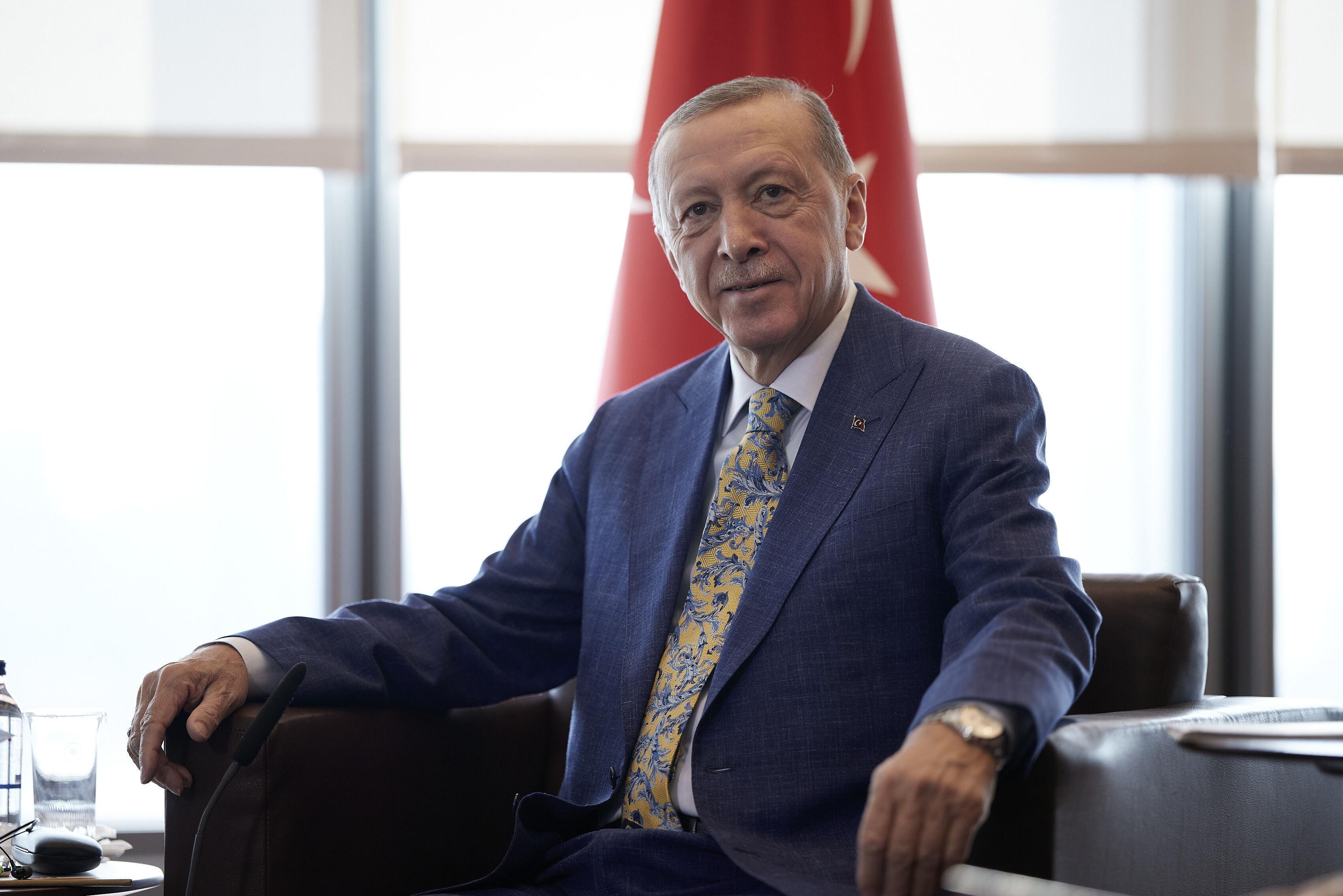 Turkish President Recep Tayyip Erdogan, meets with Greek Prime Minister Kyriakos Mitsotakis (not in photograph) on the sidelines of the United Nations General Assembly in New York, Sept 20, 2023. (PHOTO / GREEK PRIME MINISTER'S OFFICE VIA AP)
Turkish President Recep Tayyip Erdogan, meets with Greek Prime Minister Kyriakos Mitsotakis (not in photograph) on the sidelines of the United Nations General Assembly in New York, Sept 20, 2023. (PHOTO / GREEK PRIME MINISTER'S OFFICE VIA AP)
ANKARA - Turkish parliament will ratify Sweden's NATO membership if the United States permits the sale of its F-16 fighter jets to Türkiye, Turkish President Recep Tayyip Erdogan said on Tuesday.
"If they fulfill their promise, our parliament will also fulfill its, and take its steps accordingly," Erdogan was quoted by semi-official Anadolu Agency as saying.
Turkish Foreign Minister Hakan Fidan has recently held meetings with his US counterpart Antony Blinken regarding the issue, Erdogan told journalists on his flight back from Azerbaijan to Türkiye.
After being kicked out of the F-35 stealth fighter jet program by Washington for purchasing Russia's S-400 air defense systems, Ankara has sought to buy more F-16 jets, but its request has been pending for months with the Biden administration and US Congress
After being kicked out of the F-35 stealth fighter jet program by Washington for purchasing Russia's S-400 air defense systems, Ankara has sought to buy more F-16 jets, but its request has been pending for months with the Biden administration and US Congress.
ALSO READ: Hungary: No urgency to ratify Sweden's NATO bid
The Turkish government agreed to advance Sweden's accession to NATO in July, but the decision needs the approval of its parliament which will end recess in October.
The Turkish parliament ratified Finland's NATO bid in March, but is still reluctant about a similar bid from Sweden because of its alleged support for the outlawed Kurdistan Workers' Party (PKK).
READ MORE: Erdogan urges US not to link F-16 sales to Sweden's NATO bid
Finland and Sweden applied to join NATO in May 2022 in the wake of the Russia-Ukraine conflict. Their accession to NATO needs the approval of all member states of the military alliance. Türkiye, a NATO member, held back its approval and accused the two Nordic countries of supporting anti-Turkish Kurdish organizations and political dissidents.


